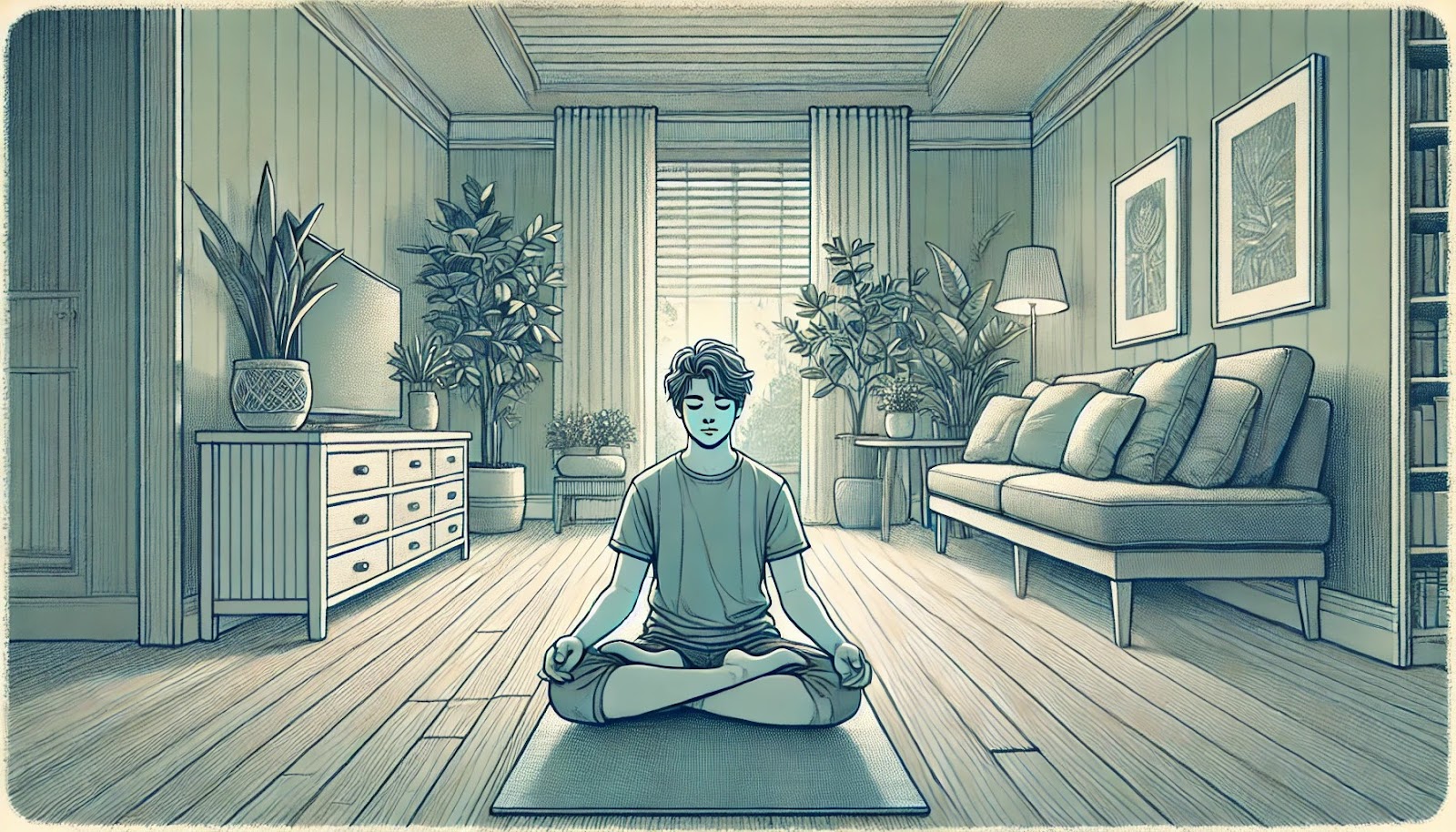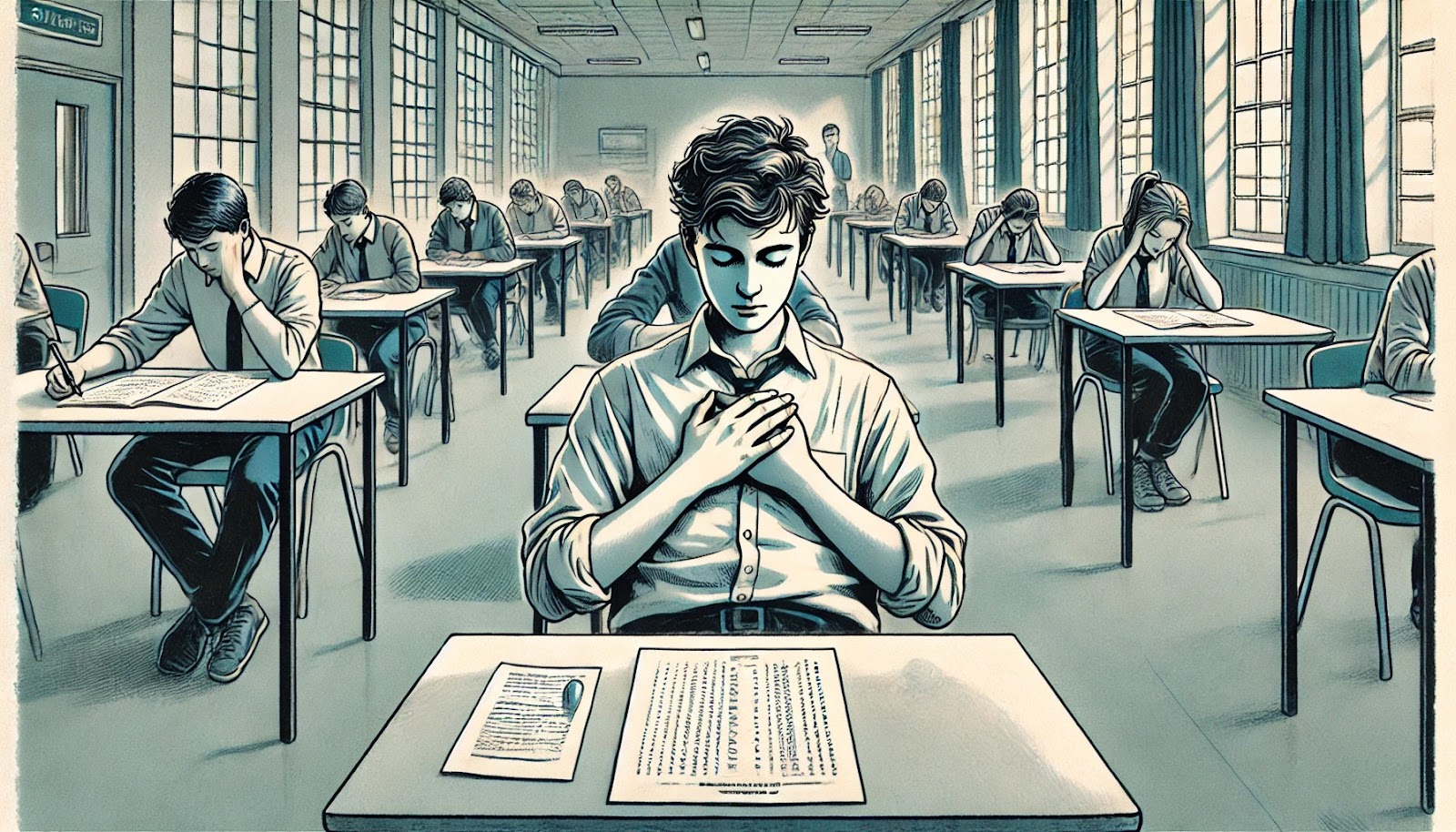Key Takeaways
- Cognitive behavioral therapy (CBT) is an effective treatment for teens dealing with anxiety, depression, and behavioral issues.
- CBT helps teens recognize and change negative thought patterns, leading to healthier emotional responses.
- Activities like journaling, mindfulness, and role-playing are integral parts of CBT for teens.
- Finding the right therapist is crucial for successful CBT, emphasizing the importance of experience and a strong therapeutic connection.
- Mission Prep Healthcare integrates cognitive behavioral therapy (CBT) as a cornerstone treatment for teens struggling with anxiety, depression, and other mental health challenges, providing structured, goal-oriented therapy that addresses negative thought patterns.
CBT for Teens: An Introduction
Cognitive behavioral therapy, commonly known as CBT, is a type of talk therapy that focuses on identifying and changing negative thought patterns. For teens, this approach can be particularly effective, providing them with tools to manage stress, anxiety, and other emotional challenges.
CBT operates on the principle that our thoughts, feelings, and behaviors are interconnected. By changing negative thoughts, we can alter our emotions and behaviors. This therapy is structured, goal-oriented, and often involves homework assignments to practice skills outside of sessions.
Therapists guide teens through a process of recognizing unhelpful thought patterns and developing healthier ways of thinking so they can respond to situations in a more balanced and rational manner.
Identifying Common Teen Challenges
Teens face various challenges, including academic pressure, social dynamics, family issues, and the quest for identity. On top of that, many teens struggle with anxiety, depression, and behavioral problems.
CBT can address these challenges by helping teens understand and modify the thoughts that contribute to their distress. By doing so, it reduces symptoms and improves overall well-being.
Mission Prep Healthcare specializes in mental health treatment for teens aged 12-17, offering residential and outpatient programs for anxiety, depression, trauma, and mood disorders. Our therapies include CBT, DBT, EMDR, and TMS, tailored to each adolescent’s needs.
With a structured, supportive environment, we integrate academic support and family involvement to promote lasting recovery. Our goal is to help teens build resilience and regain confidence in their future.
Effective CBT Activities for Teens
Journaling Techniques
Journaling is a powerful CBT tool that helps teens reflect on their thoughts and emotions. It encourages self-awareness and provides a safe space to explore feelings. Teens can write about their daily experiences, noting any negative thoughts and how they responded to them.
Regular journaling helps teens track their progress and identify patterns in their thinking, which promotes mindfulness and helps them recognize triggers for negative thoughts.
Mindfulness Exercises

Mindfulness exercises teach teens to focus on the present moment, reducing stress and anxiety. These exercises include deep breathing, meditation, and guided imagery.
Mindfulness helps teens develop a greater sense of calm and clarity, so it’s easier for them to apply CBT techniques in their daily lives.
Role-Playing Scenarios
Role-playing is an interactive CBT activity that allows teens to practice new skills in a safe environment. Teens can act out scenarios they find challenging, such as dealing with peer pressure or managing conflict.
Through role-playing, teens build confidence and develop effective communication skills. Plus, therapists have the opportunity to offer constructive feedback and guidance.
Thought Record Worksheets
Thought record worksheets help teens identify negative thoughts and challenge them with evidence-based reasoning. Teens learn to question the validity of their thoughts and consider alternative perspectives.
This way, they can develop a more balanced and rational way of thinking, which can significantly reduce emotional distress.
Pros of CBT for Teens
Immediate Coping Strategies
CBT’s focus on equipping teens with immediate coping strategies is a major benefit—and why this approach is often used in teen therapy. This aspect of therapy empowers adolescents to handle stressors as they arise.
Techniques such as deep breathing, positive self-talk, and visualization can be learned quickly and applied in real-time situations.

For example, a teen experiencing anxiety before a big exam can use CBT techniques to calm their nerves and improve focus. By practicing these skills regularly, teens build resilience and confidence in their ability to manage difficult emotions.
Improvement in Emotional Regulation
Teens often struggle with intense emotions that can feel overwhelming. Through CBT, they learn to identify and challenge distorted thoughts that contribute to emotional distress—which helps them gain control over their emotional responses.
As teens become more adept at regulating their emotions, symptoms of anxiety and depression will lessen. This improvement in emotional well-being can lead to better relationships and academic performance, along with an overall better quality of life.
Boosting Problem-Solving Skills
CBT also improves problem-solving skills. By breaking down problems into manageable parts, teens learn to approach challenges systematically, which fosters critical thinking and encourages a proactive mindset.
As a result, teens become more adept at finding solutions to everyday problems—from resolving conflicts with peers to making important life decisions. These skills not only benefit them in the present but also prepare them for future success.
Cons of CBT for Teens
Initial Resistance or Reluctance
Teens may exhibit resistance or reluctance to engage in CBT for various reasons—they may feel uncomfortable discussing their thoughts and feelings or fear being judged.
Parents can play a supportive role by encouraging open communication and reinforcing the value of therapy. Patience and understanding are crucial during this initial phase.
Commitment to Practice
Successful CBT requires commitment and effort from the teen. Practicing skills outside of therapy sessions is essential for reinforcing learning and achieving long-term change. But, this can be a challenge for teens who may struggle with motivation or time management.
Setting realistic goals and celebrating small successes can help teens stay motivated. Therapists and parents can work together to support the teen in establishing a consistent practice routine.
Not a Universal Solution
Recognize that CBT is not a one-size-fits-all solution. While it is effective for many, some teens may benefit more from alternative therapeutic approaches, such as dialectical behavior therapy (DBT) or family therapy.
Flexibility and openness to exploring different options can lead to more successful outcomes.
Finding the Right CBT Therapist
Qualities of a Good Therapist
When searching for a CBT therapist for your teen, find someone who has the right qualities. A good therapist should be empathetic, patient, and have excellent communication skills.
They should be able to connect with adolescents and create a safe, non-judgmental environment for them to express their thoughts and feelings.
Ensuring Credibility and Experience
Look for professionals who are licensed and have specialized training in cognitive behavioral therapy.
It’s also beneficial to find someone with experience working with teens, as they will be more familiar with the unique challenges and developmental stages of adolescence.
Building a Therapeutic Connection
The therapist should establish trust and rapport with your teen to make them feel comfortable and understood. This encourages open communication and increases the likelihood of a positive therapeutic experience.
Parents can support this process by being involved in the therapy journey, while also respecting the teen’s privacy and autonomy.
Transform Your Teen’s Future with Evidence-Based CBT at Mission Prep

At Mission Prep, we’ve witnessed firsthand how cognitive behavioral therapy transforms teens’ lives by equipping them with practical skills to overcome anxiety, depression, and behavioral challenges.
While CBT offers powerful benefits, we recognize it requires commitment and isn’t universally effective for everyone. That’s why our approach integrates CBT with complementary therapies like DBT and somatic experiencing within our biopsychosocial framework.
What distinguishes Mission Prep is our comprehensive assessment process and personalized treatment plans. Our experienced therapists create safe, supportive environments where teens can practice CBT techniques like cognitive restructuring, mindfulness, and exposure therapy. We offer both residential and outpatient options in our facilities in California and Virginia.
Our holistic approach, combining evidence-based therapies, peer support, and practical skill development, makes a difference in your teen’s recovery journey.
Don’t let your teen struggle alone. Contact us today to verify your insurance and learn how Mission Prep’s CBT-focused treatment can help your teen build resilience.
Frequently Asked Questions(FAQ)
How Long Does CBT Typically Last?
The duration of CBT varies depending on the individual’s needs and goals. Typically, CBT involves 12 to 20 weekly sessions, but some teens may require more or fewer sessions. The therapist will work with your teen to develop a personalized treatment plan that aligns with their specific challenges and progress.
Can CBT Be Combined with Medication?
Yes, CBT can be effectively combined with medication when appropriate. For some teens, a combination of therapy and medication can provide the best outcomes—particularly for those with moderate to severe symptoms. Work closely with both a therapist and a psychiatrist to ensure a coordinated and comprehensive treatment plan.
Is CBT Suitable for All Teenagers?
CBT is suitable for many teenagers, but it may not be the best fit for everyone. Some teens may benefit more from other therapeutic approaches based on their individual needs and preferences. A thorough assessment by a qualified mental health professional can help determine the most appropriate treatment for your teen.
What types of teen mental health conditions does Mission Prep treat?
Mission Prep Healthcare specializes in treating a wide range of adolescent mental health conditions, including anxiety disorders (such as Generalized Anxiety Disorder and Social Anxiety), depression, bipolar disorder, PTSD, personality disorders, and ADHD. Our programs are designed to address both mild, moderate, and severe cases, providing personalized care for each teen’s unique needs.















